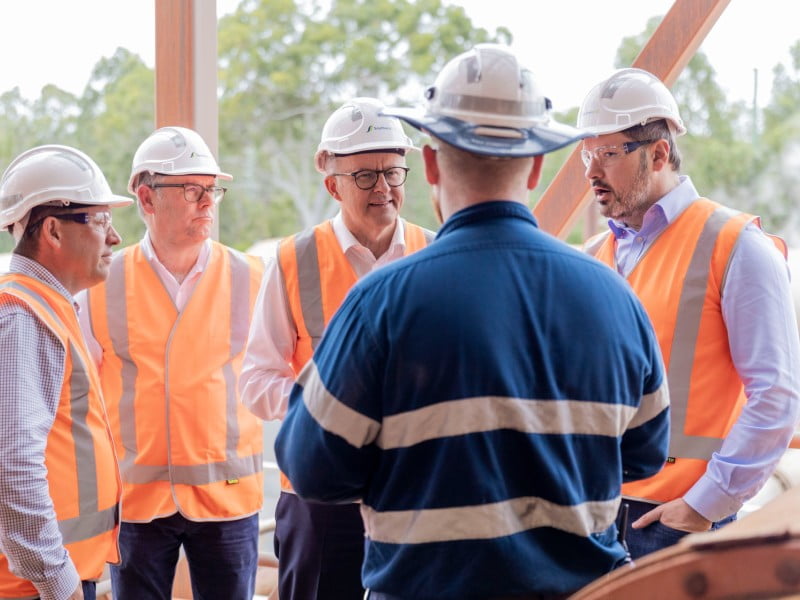Labor has unveiled its plan to “kickstart” battery manufacturing in Australia with a $100 million precinct in Queensland, a new Industry Growth Centre and a national strategy.
Opposition Leader Anthony Albanese and Shadow Industry Minister Ed Husic made the election pledge in Gladstone on Thursday.
At the centre of the plan is a $100 million equity injection into a new Battery Manufacturing Precinct in Gladstone in partnership with the Queensland state government.
The land for the precinct in Gladstone will likely be made available by the state government.

A Labor government will also launch a National Battery Strategy and launch a Powering Australia Industry Growth Centre as part of the plan if it wins next week’s federal election.
Labor’s plan is about ensuring the full value of Australia’s critical minerals are realised locally, Mr Husic said.
“We’ve got the people, we’ve got the resources, we’ve got the capital: We just haven’t had government willing to bring it all together and ensure that we manufacture batteries here in Australia,” Mr Husic told InnovationAus.com.
“We know the demand for batteries here is significant, not just to power EVs – as important as that is – but energy storage systems will be critical and meeting the needs of industry and businesses, along with a huge appetite from households to store energy generated from their rooftop solar.
“Australians and people overseas would be scratching their heads wondering if we have such a huge supply of the resources that go into making batteries, why aren’t we making them here instead of importing the massive costs from someone else overseas?”
Mr Albanese said the plan would help to “rebuild manufacturing” in Australia and improve sovereign capability in the space.
The new Growth Centre, which would join the existing six centres in priority areas, would offer advanced technology and skills development for businesses looking to locally manufacture renewable energy technologies.
It will also offer mentoring to SMEs and help with working with larger Australian and international companies, Mr Husic said.
“We want it to help scale up firms that want to be involved in a range of activities in the value chain, particularly cell manufacture, but again the Future Battery Industries CRC has identified a lot of work that can be done and should be done, and we’re keen to make that a focus of the Industry Growth Centre.”
A recent report commissioned by the Future Battery Industries Cooperative Research Centre found that a national battery strategy could create up to 34,700 jobs and $7.4 billion in economic activity by 2030.
“That is how exciting the opportunities are, but we need to make sure that we seize those opportunities, and that is what federal Labor wants to do,” Mr Albanese said.
The federal Opposition said the Coalition has “missed vital opportunities” to build a local battery manufacturing industry.
“[The government will] back refining and processing but won’t take the next big step. Industry is prepared to step up but they would also appreciate a signal of commitments of interest out of government, and we’re determined to provide that,” Mr Husic said.
The national strategy will aim to make Australian batteries as recognisable as Holden cars once were, Labor said.
“There’s $100 million to help set up the battery precinct but the big focus longer-term is on the result of the national battery manufacturing strategy – we’ll work from there on the next steps,” Mr Husic said.
A Quad Tech Network report late last year found that Australia needs to secure battery value chains out of China, which it said controls a “strategic choke point” in global supply chains which it would weaponise for political or economic gain.
In its pre-budget submission, the Future Battery Industries CRC called for $1 billion in funding over five years for the sector from the Coalition’s Modern Manufacturing Initiative and a $750 million national battery institute.
The Western Australian and Queensland state governments have already unveiled battery industry strategies.
Do you know more? Contact James Riley via Email.

